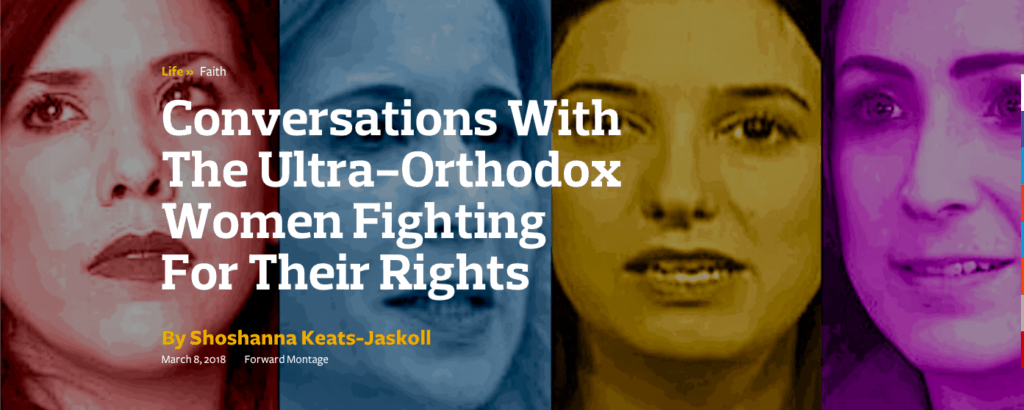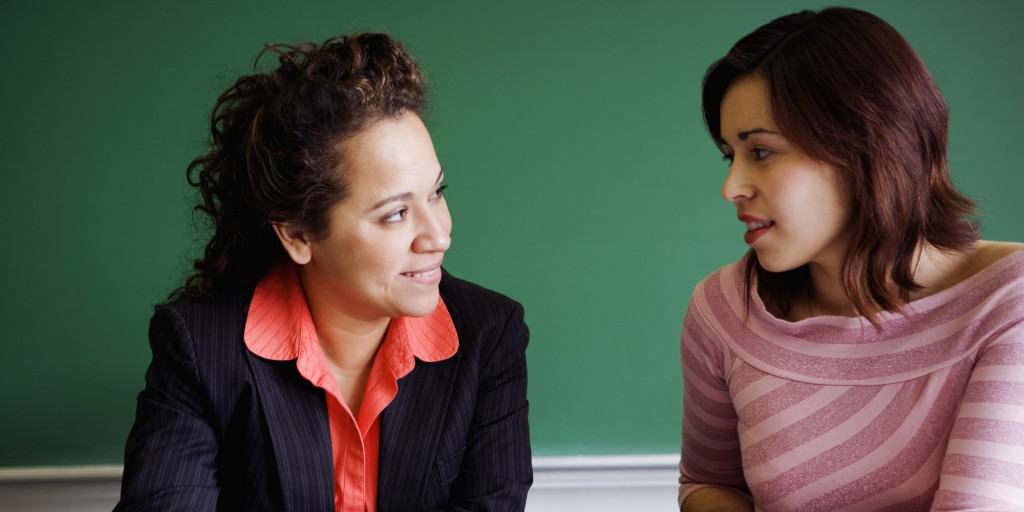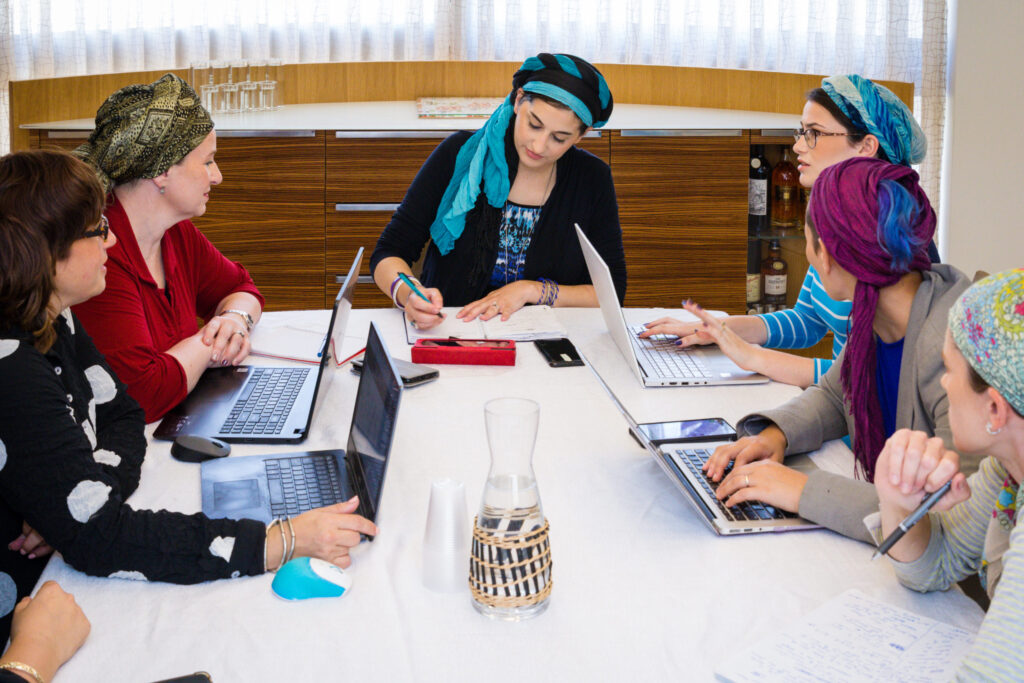Knesset member Aliza Lavie is blond, poised — and whip smart.
I caught her on her way out of the Knesset after yet another dead-end meeting with its ultra-Orthodox members, discussing women’s rights.
“Ultra-Orthodox parties are taking women backwards. Everything I try to do, they block,” she said, her voice rising with frustration. “Everything I’ve done, they’re trying to undo.”
I’ve been following Lavie for years — as part of my own activism for Orthodox women’s rights. Formerly a lecturer on communications and gender at Bar Ilan University, Lavie has led the charge to advance women since joining the Knesset in 2013 as part of the Yesh Atid party. Orthodox but not ultra-Orthodox, she has made it her mission to ensure women’s representation in Israel’s religious institutions. In Israel, a woman can serve as prime minister, head of the Bank of Israel, a Supreme Court judge and an air force pilot — yet her personal life is still subject to a religious legal system that renders her powerless.
For Lavie, it’s grueling work: She spends her days fighting with ultra-Orthodox members of the Knesset over women’s rights.
As part of government coalition agreements, control of all things religious is given to the Haredi parties —- and the coalition in power today (the Likud, Bayit Yehudi, UTJ, Shas, Kulanu and Yisrael Beiteinu parties) vetoes every one of Lavie’s bills. “Whether it’s to create female community representatives in the religious courts; to enlarge the women’s space at the Kotel, which is currently one-fifth of the size of the men’s, or to make prenuptial agreements [to prevent the divorce refusal] part of the marriage ceremony, my hands are tied,” she told me.
Despite 75% of Haredi women working — with 55% of married men studying full time in yeshiva, according to Hiddush, an organization working toward religious equality in Israel — Haredi women are entirely absent from government.
Both of the Haredi political parties, the Sephardic Shas and the Ashkenazi United Torah Judaism, bar female members; this has engendered growing problems within the ultra-Orthodox community and stokes a constant battle for women’s rights on a national level.

“They claim to represent the women in their communities, but they don’t come to sessions on women’s health or abuse,” Lavie said. “The issues in their community aren’t even discussed, because there are no Haredi women to discuss them. I work on behalf of Haredi women, but of course it’s not the same as having them there to speak for themselves. The lack of women in their parties affects the balance of the entire government, reducing the number of female MKs and ministers.”
For Ruth Colian, a Haredi lawyer and a colleague of mine, watching the community’s male representatives ignore, repeatedly, matters critical to women’s health inspired her to create U’Bizchutan, a Haredi women’s political party, under which she ran for the Knesset in the 2015 elections.
“I saw women dying of a disease they could not name — breast cancer — because of modesty,” Colian said. “I saw domestic violence that was kept quiet, women taken advantage of at work — especially Sephardic women — and Sephardic girls kept out of schools because of their backgrounds. They deserve to be heard.” Colian did not cross the election threshold, but it created a storm in Haredi society, marking the first time a Haredi woman challenged the status quo.
‘Today, We Have No Influence’
Esty Shushan, founder of Nivcharot, a women’s rights organization, feels that this lack of representation lies at the core of the issues Haredi women face.
“Our fight today is a battle for basic rights,” she said. Speaking quietly but passionately, the Safed-born Shushan explained that she was still shaken by the story of a woman she met the day before.
“Like so many Haredi women, Sarah married young after meeting her husband twice,” she told me. “She was hardly consulted in the process. She got pregnant immediately, but the marriage did not work and she got a divorce. She raised her son on her own until the boy turned 4, at which point her ex’s family took him from her, and she hasn’t seen him in over a year. They make her life hell.”
The phone went quiet, and Shushan’s tone shifted from sad to angry: “All she wants to do is learn. To be educated. To be a lawyer and prevent these things from happening to other women. But she has no education, no money, no future. And there is no one who is helping her.”

Shushan lashes out not at the community that allows such things to happen, but rather at the Israeli government for enabling the disempowerment of Haredi women. “We live in a democratic state where every person has rights, but we, Haredi women, still lack representation,” she said. “The religious parties state explicitly that they are parties of men. Women have no influence or power. The State of Israel allows institutionalized discrimination when it comes to those who hide behind religion.”
Shushan sees her background in the community as essential to her work. “Only someone who has lived our life can know what we go through, what it’s like to be a young Haredi woman without work or education, under pressure to marry young and raise a family,” she said. “When we turn to women who want to help but aren’t Haredi themselves, we are accused of ‘going outside of the community’ and are shunned.”
‘Our Lives Are A Duality’
And it is not only in government that women lack positions of influence — the rabbinic courts, which have exclusive jurisdiction over all Jewish divorce in Israel, comprise all-male panels, in accordance with Jewish law.
It was from one of these divorce courts that Fainy Sukenik expected justice when she applied for a divorce at the age of 27, after seven years of marriage and three children.
She was sorely disappointed.
“It’s about you and your husband, but, at the same time, the political struggles play out in micro,” she explained. “A woman comes to court and, regardless of her success or status, there, her word matters less. Since Jewish divorce law favors the husband, much depends on the judges’ outlook. If the judges run their court according to outdated models of society, she can say she wants a divorce, she can say that she is abused, but if her husband says he still wants to be married, she has very little chance of getting a divorce.”

Sukenik described Haredi women’s lives as a duality: “In some ways, our rights are very present, and in others they are invisible. Men study Torah, so women go out into the world and work. But at the same time, we are told, no matter what you do or accomplish, it is not as important as your husband’s learning. At home you are number two; your goal in life is to support your husband and make a family. This is what we are taught from childhood.”
During the years she sought a divorce, Sukenik was ostracized and nearly fired from her teaching position at a Haredi girls school because of her decision to divorce. She began to blog under a pseudonym, and started a Facebook group called B’Asher Telchi to help other Orthodox women going through divorce.
Though officially banned in Haredi society, access to the internet is widespread; many people have two phones, one “kosher” with no internet and the other a smartphone. Thousands of Haredim have joined more and more social media groups whose members support each other in the comfort of shared identity.
But these groups do more than offer support — they are breeding grounds for change.
According to the Knesset member Rachel Azaria, another Orthodox fighter for women’s rights: “Women make change in their society by raising their voices via grassroots groups. In Jerusalem, one group called Lo Tishtok [13,000 members] sparked a major debate about sexual abuse. This led to the appointment of social workers and acknowledgement of an issue that had previously been swept under the rug. Another, Lo Nivcharot [(a precursor to Shushan’s not-for-profit, Nivcharot, currently 11,000 members strong)], created a movement of women who refused to vote unless they were represented [by women in Haredi parties].”
Sukenik’s experiences also led to her expanding her Facebook group into a nongovernmental organization. Through Ba’asher Telchi she has helped 2,000 women through the divorce process over the past four years. She has seen the changes to Haredi society in these women: “My mother’s generation never asked: ‘If I bring in the money, why do I have so little say in how it gets spent? Why must I deny my wants and opinions, my intelligence, and knowledge the minute I walk in the door?’ Women are beginning to ask questions [that] are influencing the entire Haredi structure.”
Sukenik asked incredulously: “Will Haredi society disintegrate if women have rights and are treated as equals? No! Not at all. So, to whose advantage is it to keep things this way? I don’t see this as men versus women, I see this as elites versus the average people. [Communal leaders and rabbis] want to stay in power; this is how they keep things in control, how they control people.”
‘Here, The Status Quo Is A Holy Thing’
Michal Zernowitski first entered Haredi politics in 2014, when she ran for office (and subsequently lost) in local elections of the ultra-Orthodox city Elad. Zernowitski spoke passionately about the elite that rules her society.
“Women are not rabbis, they are not communal leaders,” she said. “Our educational institutions are private with no government oversight. Every organization that runs the schools is devoid of women. Men make decisions. People get used to there being no women in any position of influence or authority, and they don’t understand how much this affects the community, in health, economics, women’s rights, etc. It’s not that they are bad people, but they aren’t women. How can they possibly represent our needs? In rabbinic courts, there are no female judges. Of course that affects how women are seen. Our kids are growing up without even seeing pictures of women — of course that affects them!”

The outcomes are clear. According to Rachel Levmore — the first female rabbinical court advocate elected to the committee to appoint rabbinic court judges — women’s experiences in Israeli courts improved dramatically when women were introduced as halachic and legal representatives and included in the committee that elects judges.
“When women hold official positions, the concerns of those women who appear in court are more likely to be heard,” she said.
Moreover, Haredi women are unlikely to have their concerns addressed anywhere else. Given the prohibition against television, secular radio and the internet in Haredi society, many Haredim get their news from internal ultra-Orthodox media, where censorship is a given. Some topics, such as women’s rights, women’s health, sexual abuse or even women in the news, are simply not mentioned.
On the one hand, this practice shields the population from secular influences they consider damaging; on the other, it limits awareness of opportunities and potential risks in ways that may have lasting ramifications.
When it comes to women’s rights, for example, Zernowitski says Haredi girls have no access to understanding their legal employment rights — essential as more and more women enter the tech workforce, finding employment in computers, business management and software engineering. (According to the Israel Democracy Institute, 17,300 Haredi high school girls are currently majoring in technological fields, an increase of 45% from 2013; more than half of them take matriculation exams.)
But when the Israel Women’s Network launched an awareness campaign about a legal advice hotline for religious women, the response was overwhelming. “We were bombarded with such insane and basic questions [from Haredi women] about women’s rights to salary and benefits, we had to hire lawyers and specialists,” said Zernowitski, who sits on the organization’s board.
Changing a community’s culture is complicated.
“In the Haredi world, ‘status quo’ is a holy thing,” Zernowitski explained. “The problem is that extreme elements always try to make it more extreme. It’s not enough to have separate classes, now it’s separate buses, libraries, separate everything, and this becomes the new normal. This is what we are up against.”
All these efforts by Haredi women to improve their society may be culminating, at least for now, in the candidacy of Rabbanit Adina Bar Shalom for government. The daughter of the revered late rabbi Ovadia Yosef, who also founded the Shas party, has announced a new political party that she will head. Her very announcement is a game changer, reflecting the winds of change that now seem inevitable. Most recently, the Israeli Ministry of Justice appointed its first female Haredi judge, Chavi Toker, to head the magistrate court.
Perhaps because of heartening developments like these, Haredi women’s activists are staying put, determined to make a difference.
Sukenik, Shushan, Zernowitski and their colleagues have no interest in abandoning their community. Rather, they want to improve it, by making women’s voices prominent. They know that if they do not fight for the improvement they want to see, their community will be vulnerable to the extremists.
Zernowitski sees this battle as the launching point for women’s representation in policymaking. “Haredi women are at the forefront of all rights struggles in the Haredi sector, in the battle for the rights of divorced women and women in general, in struggles for the rights of workers, in the revolution for higher education and employment, in the fight against sexual abuse and for quality education for our children. I believe that from here, they will reach decision-making positions, and that it will happen soon.”
Originally published in The Forward





